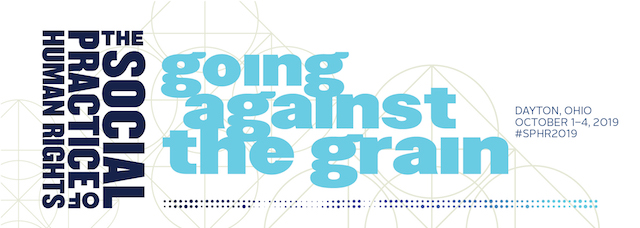Location
Economic Inequality and Climate Justice
Start Date
10-2-2019 2:00 PM
End Date
10-2-2019 3:30 PM
Keywords
human rights, international human rights, environment, environmental justice, environmental protection
Abstract
The connection between the environment and human rights is not a surprising one. The enjoyment of human rights depends on a person’s ability to live free from interference and to have his or her rights protected. The interdependence of human rights and the protection of the environment is manifested in the full and effective enjoyment of the rights to life, highest attainable standard of physical and mental health, adequate standard of living, adequate food, clean water and sanitation, housing, culture, freedom of expression and association, information and education, participation, effective remedies, and the rights of indigenous peoples. Without adequate access to a healthy environment, other critical aspects of a person or community’s life and survival would be impossible. This article argues that the right to a healthy environment has been explicitly and implicitly recognized in domestic, regional and international courts and that more needs to be done for the full enjoyment of this right. To continue moving forward in the protection of the human right to a healthy environment, there must be an explicit recognition of the right to a healthy environment in its own right that is separate from the indigenous rights movement and the rights of minorities.
Author/Speaker Biographical Statement(s)
Sarah Dávila-Ruhaak is Assistant Professor & Co-Founder and Director of the International Human Rights Clinic at The John Marshall Law School. She teaches International Human Rights, Transitional Justice, and lectures on international topics as part of her clinical and doctrinal teaching. Prior to working at John Marshall, Dávila-Ruhaak was an adjunct lecturer at the University of Illinois at Chicago (UIC), where she taught international law, international human rights, transitional justice, human rights in the U.S., and criminal law. She also worked as a pro bono attorney with the Institute for Justice & Democracy (IJDH) in Haiti and litigator at CAMBA Legal Services, an organization in New York City. She has experience in the domestic and international litigation of human rights cases and has engaged in impact advocacy at the United Nations. She has also been instrumental in the Clinic’s work on behalf of Haitian cholera victims suing the United Nations, immigrant detention conditions and solitary confinement, Inter-American litigation, human trafficking of Puerto Rican victims, Human Rights for Syrians Initiative, and the Asylum Project.
Included in
Environmental Law Commons, Human Rights Law Commons, International Law Commons, Jurisprudence Commons
The Human Right to a Healthy Environment: Pushing the Boundaries in the Inter-American System
Economic Inequality and Climate Justice
The connection between the environment and human rights is not a surprising one. The enjoyment of human rights depends on a person’s ability to live free from interference and to have his or her rights protected. The interdependence of human rights and the protection of the environment is manifested in the full and effective enjoyment of the rights to life, highest attainable standard of physical and mental health, adequate standard of living, adequate food, clean water and sanitation, housing, culture, freedom of expression and association, information and education, participation, effective remedies, and the rights of indigenous peoples. Without adequate access to a healthy environment, other critical aspects of a person or community’s life and survival would be impossible. This article argues that the right to a healthy environment has been explicitly and implicitly recognized in domestic, regional and international courts and that more needs to be done for the full enjoyment of this right. To continue moving forward in the protection of the human right to a healthy environment, there must be an explicit recognition of the right to a healthy environment in its own right that is separate from the indigenous rights movement and the rights of minorities.



